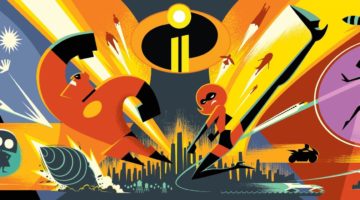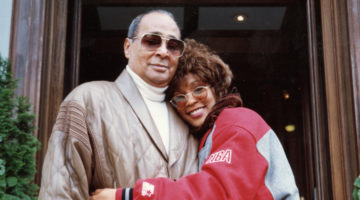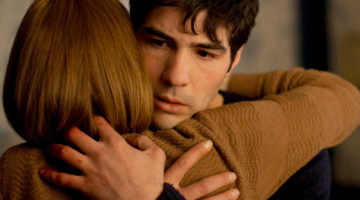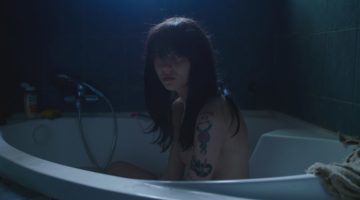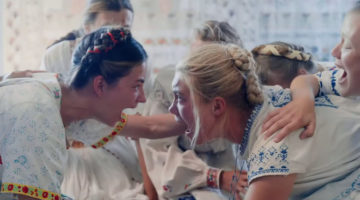Movie Review: Cloud Atlas
Everything is connected in the past, present and future in the ambitious Cloud Atlas, the catch is that sometimes you need to force things to fit together. The star-studded film, directed by the Wachowski siblings of The Matrix and Tom Tykwer (director of Run Lola Run,) tells six separate yet joined stories across space and time, reaching incredible literally and figurative heights, occasionally stumbling on the way to the top.
Each tale is different in tone and problem, but thematically they all deal with freedom and oppression, love and death, and other sweeping, timeless notions. It is masterful storytelling, impressive direction, and curious acting, never reaching the perfection that is The Cloud Atlas Sextet, the fictional piece of music created in the film, but it remains compelling throughout most of its nearly three hour running time.
Tom Hanks, Halle Berry, Jim Broadbent, Hugo Weaving, and Jim Sturgess, to name a few, earn their paychecks playing a variety of roles in some very different settings. They are characters in this time and then, in centuries past, and the post-apocalyptic future (which has some eerie similarities to the distant past). You can easily spot most of the actors in their various roles, but the best reveals come after the credits role when you discover just how hidden some of the players are (Hugh Grant and Susan Sarandon also play several characters).
It has a grand ambition that is incredibly worthy, but when trying to do so many things well, it fails to do anything perfectly. Each actor makes an appearance in every stage of varying levels of prominence, sometimes just reciting a line or two or hiding in the background. While they are ideally suited for several roles, by the fourth or fifth iteration, there is much to be desired. Doona Bae plays a beautifully cloned service worker in 22nd century Korea and is superb, but when she also plays the belle daughter of a slave owner in the 19th century, things fall a bit short.
Mr. Hanks is great as Zachry, a plagued valley-dweller in the far future trying to protect his family from forest warriors, but he is pretty silly as an Irish mobster. Everyone has a great part or two, and everyone has a silly one.
Which is how the movie runs. The story in 22nd century Seoul is filled with action and science fiction, the one in the distant future is bloody and suspenseful, the tale of young love in early 19th century is romantic and heart-wrenching, while another, set in 2012, is silly romp. Sometimes these stories flow seamlessly from each other, and sometimes they stall. It is funny and charming, sad and tragic, violent and deathly, everything—and nothing.
The movie is a song itself, more a symphony than a sextet, with peaks and valleys, and refrains repeating; and it needs to be experienced, its creativity recognized. The film seems to end several times throughout, as two or three threads will build to a dramatic height, only to reset and begin again. But of course there is no real ending, just a little bit of history repeating.
[star v=3]



